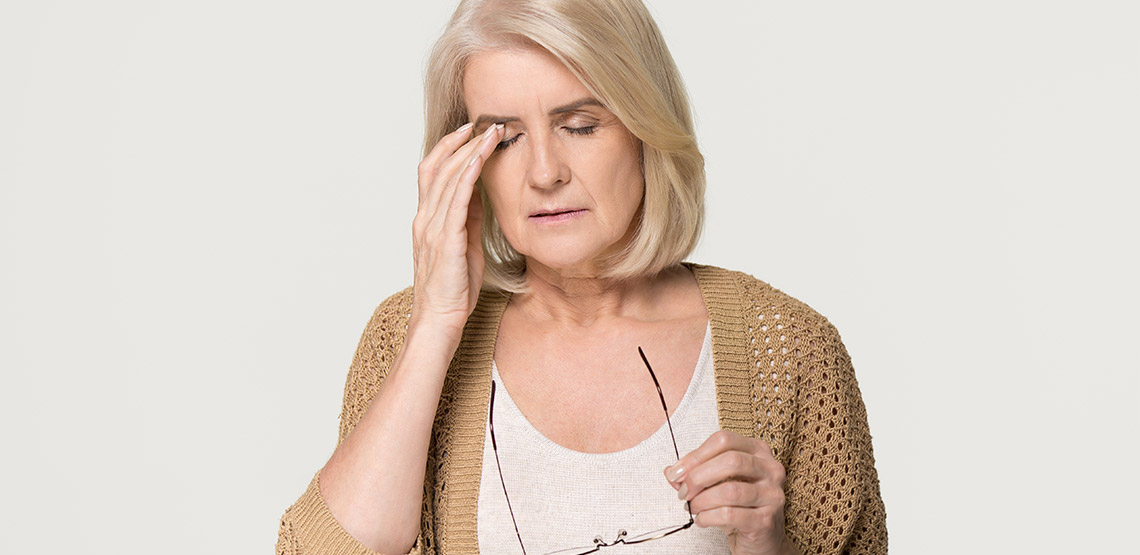What Causes Migraines?
Migraines sometimes seem to strike out of nowhere. Knowing which triggers to look out for, however, may help you avoid these debilitating headaches.
Anyone who’s ever suffered from a migraine knows just how debilitating these throbbing headaches can be. Yet the cause of migraines sometimes seems to be unknown. Causes can also very between people, because the circumstances are often unique depending on the individual.
If you are a migraine sufferer — or know someone who is — knowing what triggers to look out for can be extremely helpful in curbing them. Once you have a better understanding, it becomes easier to manage and live with.
What Are the Symptoms of a Migraine?
Before we look at the causes of migraines, it’s good to know what the symptoms of one is, as many people will say they have a migraine when it is, in fact, another type of headache that should be treated differently.
A migraine can be identified by the following symptoms:
- Throbbing or pulsing pain on (usually) one side of the head
- Light, sound, and even smell and touch sensitivity
- Nausea and vomiting
What Can Cause Migraines?
There seems to be not just one cause for migraines and, indeed, the causes of these headaches are still being researched. However, researchers have found that:
- Migraines are thought to be a result of abnormal brain activity that affects nerve signals, chemicals and blood vessels in the brain temporarily.
- Your genes may make it more likely to experience migraines because of specific triggers.
What Are Migraine Triggers?
Migraine triggers are very individual, but you may be able to identify a consistent trigger regarding your migraines. Some of the possible migraine triggers are:
Hormonal
Women sometimes get migraines because of changes in their hormone levels around their menstruation. These migraines usually occur between two days before and three days after the start of their period. Sometimes these migraines get a lot better after menopause.
Emotional
Migraines may occur because of emotional factors, including stress, anxiety, tension, shock, depression or excitement. By lessening your stress or anxiety levels, for example, you may be able to nip migraines in the bud.
Physical
Physical triggers seem to have fatigue or exertion in common, and can include tiredness, poor-quality sleep, shift work, strenuous exercise and jet lag. Bad posture and neck or shoulder stiffness may also contribute to you getting a migraine. Low blood sugar (hypoglacemia) may have the same effect.
Dietary
Besides dehydration, missing some meals, delaying your meals or even eating irregular meals may all contribute to a migraine forming. Alcohol or products containing caffeine (coffee, tea, energy drinks) can also trigger a migraine.
So too can specific foods, including chocolate and foods containing tyramine, a substance found in cured meats, smoked fish, and cheeses like cheddar, Stilton and Camembert.
Environmental
The environmental factors that may trigger a migraine include changes in climate — for example, changes in humidity or temperature — but may also include loud noises, strong smells, smoke or a stuffy atmosphere.
Screen Time
Getting away from screens — be it your phone or computer — can also be very beneficial in minimizing migraines.
Medicinal
Some medications can also bring on migraines or even cause them. These include certain types of sleeping tablets. The combined contraceptive pill as well as hormone replacement therapy (HRT) may also cause migraines.
What Treatments Are Available to Relieve Migraines?
Although there is no “cure," so to speak, for migraines, there are some steps you can take to relieve a migraine or even prevent it.
Over-the-Counter Pain Medication
The most common treatment for migraines is over-the-counter (OTC) pain medication. However, this does not work for everyone and may only relieve it slightly. Speak to your health care practitioner if you find you get migraines quite often or you find that OTC medications don't bring relief.
If you find you need to use headache tablets or painkillers a couple of times a week, you should see your health care practitioner as they may be able to give you something for the pain that works better.
There are also some new medications available that are showing promise in combating migraines. These include the CGRP (calcitonin gene-related peptide) inhibators erenumab and fremanezumab. These are given as an injection once a month to prevent migraine attacks.
Botox
If you get migraines on more than 14 days a month, your health care practitioner may advise you to try botox. This procedure — which takes about 10 to 15 minutes — consists of 31 botox injections around your head and neck.
What Steps Can You Take to Avoid Getting Migraines?
There are some steps you can take to avoid getting as many migraines or at least getting such severe migraines. These steps include:
Changing Your Lifestyle Habits
Eating regular and healthy meals, as well as keeping hydrated and doing regular exercise can go a long way to prevent certain migraines from occurring.
Avoiding Your Migraine Triggers
Once you know what your migraine triggers are, you can take active steps to avoid them. Whether they are food or stress related, make a point of avoiding them as much as possible. You can also let your loved ones know if there are specific foods or smells that trigger you.
Keeping a Headache or Migraine Diary
A headache or migraine diary is priceless. Jot down over a few months what you eat and do everyday and see when you have a migraine. In this way you will be able to spot if there is a pattern of triggers that you can avoid.
If you find that your migraines are becoming more frequent or severe, be sure to speak to your health care professional.
